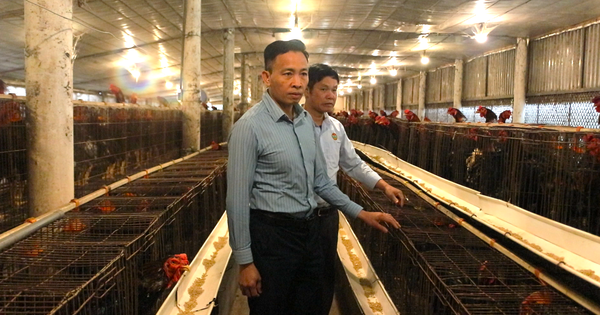Although banks have supplied nearly VND200,000 billion to the economy in the first months of the year, many businesses still face difficulties in accessing capital. According to experts, to make bank capital flow to businesses more effectively, there needs to be close coordination between the bank's operating policies and strategies and the initiative from businesses.
According to the State Bank's report, as of March 12, credit had increased by 1.24% compared to the beginning of the year, while the same period in February 2024 recorded a decrease of 0.74%. It is estimated that the total outstanding credit of the entire banking system up to this point has reached VND 15.81 million billion, an increase of nearly VND 194,000 billion compared to the end of 2024 and about VND 164,000 billion since after Tet.
Previously, the State Bank assigned the credit growth target for 2025 to credit institutions with a target of 16%, to meet the capital needs of businesses and people and boost the economy.
A State Bank leader said that in the first two months of the year, the agency issued 10 documents directing credit institutions to implement solutions to boost credit growth, simplify procedures and accelerate the application of digital technology in credit granting activities. In addition, banks are also required to strictly implement the direction of the Government, the Prime Minister and the State Bank on stabilizing and reducing lending interest rates.
Thanks to these synchronous measures, credit at the beginning of the year has improved compared to the same period in 2024, although normally, credit tends to decline in the first months of the year due to seasonal factors and the Lunar New Year holiday.
However, he also admitted that many businesses have difficulty accessing loans because they do not meet the bank's conditions. "Banks cannot increase credit at all costs. Businesses need to meet financial and operational standards to ensure credit quality and avoid increasing bad debt," he emphasized.

Economist Nguyen Quang Huy analyzed that recent data shows that credit in Vietnam has grown at an impressive rate. The State Bank of Vietnam has continuously reported that credit capital is being pumped quickly into the economy to support the recovery of production and business. However, in reality, many businesses, especially small and medium enterprises, still reflect that borrowing from banks is very difficult.
According to Mr. Huy, although credit has increased, it is not distributed evenly. Most of the capital flows to large enterprises, prestigious corporations or the real estate sector, while small enterprises - which account for a large proportion of the economy - have little access. Banks often prioritize customers with high-value mortgage assets and good credit histories, making many small businesses ineligible for loans.
Mr. Huy also pointed out that although interest rates have decreased at some points, lending conditions are still quite strict. Businesses must demonstrate financial stability, a clear business plan, and good profitability. However, after a difficult period due to the pandemic and economic fluctuations, many businesses cannot meet these criteria. As a result, although credit has increased, not all businesses can access capital.
In addition, after a series of bad debt incidents in recent times, commercial banks are becoming more cautious when reviewing loan applications. The appraisal process is tightened, and high-risk loans are often rejected, especially for new businesses or businesses in the recovery phase.
To resolve capital difficulties for businesses, Mr. Huy said that there needs to be close coordination between the parties. The State Bank can consider more specific support policies such as credit guarantees or loosening lending conditions for small and medium enterprises. Commercial banks also need to be more flexible when reviewing applications, instead of relying solely on collateral. On the business side, improving management capacity, financial transparency and building a feasible business plan are important factors to increase access to capital.
“High credit growth is a positive signal for the economy, but for capital to flow effectively to businesses, there needs to be improvements in both policy and implementation practices. Otherwise, the problem of ‘difficulty in borrowing capital’ for businesses will continue to be a challenge in the coming time,” Mr. Huy commented.
Source: https://baodaknong.vn/ngan-hang-rot-gan-200-000-ty-dong-doanh-nghiep-van-loay-hoay-tim-von-247418.html





![[Photo] Prime Minister Pham Minh Chinh chairs meeting to remove difficulties for projects](https://vstatic.vietnam.vn/vietnam/resource/IMAGE/2025/3/30/7d354a396d4e4699adc2ccc0d44fbd4f)
![[Photo] Ministry of Defense sees off relief forces to the airport to Myanmar for mission](https://vstatic.vietnam.vn/vietnam/resource/IMAGE/2025/3/30/245629fab9d644fd909ecd67f1749123)






































































![[Video]. Developing craft villages in rural areas](https://vstatic.vietnam.vn/vietnam/resource/IMAGE/2025/3/30/bc880cd4ce0e4ee88eaca6e71d2e8872)


![[REVIEW OCOP] An Lanh Huong Vet Yen Cat](https://vstatic.vietnam.vn/vietnam/resource/IMAGE/2025/3/27/c25032328e9a47be9991d5be7c0cad8c)








Comment (0)